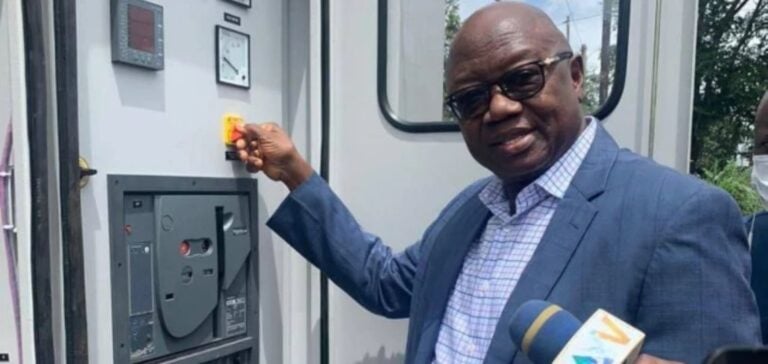Alhadji Kanja Sesay has resigned as Minister of Energy, without any detailed official explanation of the reasons for his resignation. The departure came on the heels of a significant $18.5 million payment to electricity suppliers, in an effort to resolve a larger $40 million debt.
Presidential supervision
Following this resignation, control of the Ministry of Energy was transferred directly to the supervision of President Julius Maada Bio, who will be supported by two other officials. This decision aims to stabilize the country’s energy management in times of crisis.
Financial and operational problems
Sierra Leone’s debt to electricity producers, including Turkish Karpowership and Transco-CLSG, has exacerbated power cuts. After two months of interruptions, service was restored when the government paid $18.5 million, partially covering the outstanding debt.
Impact on electricity supply
Turkish Karpowership, which has been operating a floating unit since 2018, had to reduce its production from 65 to 5 megawatts due to payment delays. This reduction has contributed to the country’s energy challenges. However, after the last payment, capacity was restored.
Comparison with other regional crises
Sierra Leone’s energy problems are comparable to those in Mali, where the national energy company’s ability to meet demand is hampered by similar difficulties.
Sesay’s resignation and the government’s swift response demonstrate the seriousness of the energy crisis in Sierra Leone, underlining the need for lasting solutions to stabilize the sector.






















